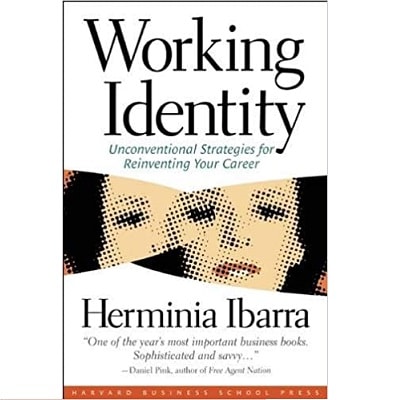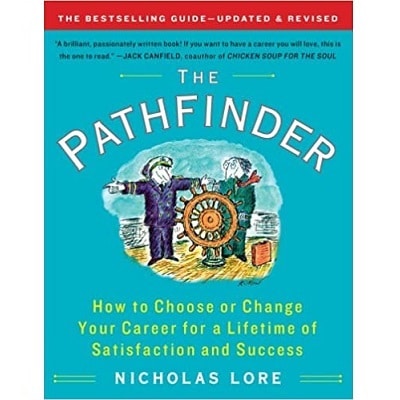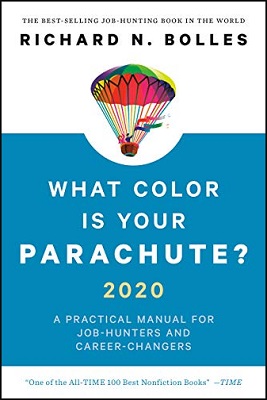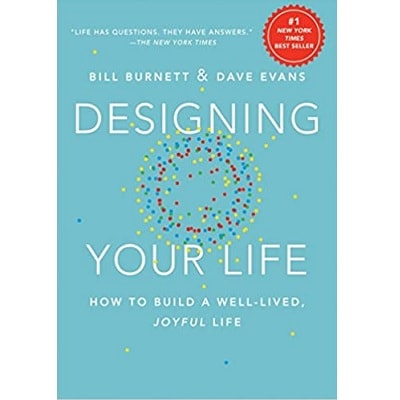This post may contain affiliate links and Corporette® may earn commissions for purchases made through links in this post. As an Amazon Associate, I earn from qualifying purchases.

Readers were discussing tips on changing careers on the weekend thread, and I thought we should delve a bit further: if you're unhappy with your job, how can you change careers? We had a post about job and career transitions a while ago, but I don't think we've properly explored changing careers.

First: I've been there, and I've seen a lot of friends there. You hate your job, you have no idea what you want to do with your life, and you feel like you've made a colossal, expensive, time-intensive mistake to spend multiple years and lots (and lots) of money on the degree you already have. So how do you get out, and get to a new career?
{related: how to change your career in a major way}
Some of My Best Tips on Changing Careers
1) Get a new job.
Your job is not your career. Keep repeating that mantra to yourself.
Even if you're currently a litigator and you hate what you do, you may find that moving from a bigger practice to a smaller practice might make huge changes in your life. Maybe you can still use that degree of yours!
Commit yourself to staying at least a year in your new position, both out of fairness to yourself and your employer. Sometimes an attitude-revamp can help you find happiness in your current position.
Your job is not your career. Keep repeating that mantra to yourself.
2) Look for a different kind of job in your current career.
For example, try teaching, or the non-profit world. You'll stay up to date on the issues and concerns of the professions (read: doors remain open), while in many cases having a drastically different lifestyle.
Sometimes you may not even need to change companies or firms to do this — start spending some of your time in a different practice area (for the lawyers) or even see if you can spend time in a totally different area of your company.
Sometimes, though, an entirely new career is needed. Assuming you know what you want to do (big caveat, I know), really assess your lifestyle: do you have your loans from your first career paid off? Are you living below your means enough that you can take a salary cut (and perhaps a substantial one)? Do you have enough in savings to get you through 1-5 years of fairly lean times?
Psst: These are some of our favorite books if you're considering changing your career





What to Do If You Need An Entirely New Career
3) Get a degree.
My (admittedly cynical!) view of grad school is that you are buying yourself a new career. Business school, as well as many other professional-focused degrees — journalism, marketing, real estate, education (just to link to a few that I know friends have done) — are handy ways of entering a new profession because networking and recruiting are built into the program.
The downside here is that it requires a lot of money and time, and it may be 3-5 years before you can truly gauge how good of a fit the new profession is for you. I would not advise anyone with connections already in a new industry to get a degree, at least at first.
4) Pursue a new career by volunteering.
One lawyer friend started volunteering at organizations that encouraged teenagers to write, and after volunteering alongside a number of people in the PR field, decided that was what she wanted to do with her life. She first took a marketing/PR job at a law firm, and now works for a regular PR agency.
Another friend volunteered his time at political organizations until he got into speech-writing. Yes, both of these ventures took a ton of time, but neither friend had huge new school loans.
This is also known as strategic volunteering!
5) If money allows, quit your job and start freelancing to get experience.
There are a lot of different ways this may manifest itself. In a creative field, there are tons of freelancing opportunities — you may have to start at the bottom but you'll get a feel for the profession and how it suits you.
If you're interested in teaching, you may be able to become a substitute teacher fairly easily.
One of my friends (who has held fairly high management positions since our late 20s) got her start because she originally wanted to be an actress, and did temp work between auditions. She met one superior who really appreciated her intelligence, creativity, and organizational skills, and the rest is history — she has one of the coolest jobs I know.
6) Consider starting your own business.
This was the route that I decided on a few years ago, with no clear idea of what I wanted to really do. I didn't want to pay for business school, but I had enough cash saved up that I was willing to make a small investment in starting a business.
First I went to Barnes and Noble and perused the entrepreneurial section, ultimately grabbing this book (primarily because it was pink, I'll admit!). I also signed up for Inc.
magazine, which just sort of kept me thinking about it on a monthly basis — so many of the stories of entrepreneurs are just so inspiring to me!
I scrapped about three business ideas before embarking on what was my first entrepreneurial venture: this site. I had a clear idea of who my audience was and what they needed, but the ultimate vision for what the site would look like and how I would get money from it were still evolving for even the first few months I was doing the site.
I liked that it had a really low start-up cost — I didn't even spend the money that I had set aside for it until about a year or two into doing the site — and that I could do it while keeping my day job. I count my blessings every night that this has been as much of a success as it has — I realize how lucky I am, trust me!
Some advice for other people looking to own their own business:
- figure out how much you want to work. I once saw “lifestyle businesses” derisively defined as “women who were content to make less than $250,000 a year.” Think jewelry-making, freelance consulting, writing, blogging <cough, cough>, yoga teaching, even psychiatrists who hang out their own shingle but keep their patient load manageable — these are all considered lifestyle businesses.
- On the down side, you may not make a ton (after all, <sniff sniff>, who can get by on less than $250K?), but on the plus side you can fit a lot of life in around the business, whether it's kids, travel, or more. On the flip side, a proper tech start-up or another huge venture (opening a restaurant, say) will consume almost all of your time and energy for a few years, at least.
- decide if you want a co-founder/co-owner. I was really wary of this — I didn't want to get into business with friends and risk our friendship, but I didn't want to work with a stranger. So I went it alone — and I blogged on my honeymoon and almost every vacation I've taken for the past few years (my husband was thrilled when, on our one-year anniversary, we went to a rural bed & breakfast that turned out to have incredibly lousy wifi). (On the plus side: I answer to myself and no one else, and I don't have to split the profits with anyone.)
- decide if you want to create a business, or if you just want to RUN your own business. If you have enough cash, for example, you can buy a franchise — if you love yoga and want to start a yoga studio, it may make more sense to buy a gym franchise. This is a huge up-front investment with varying degrees of returns, depending on the business and how you manage it, but you get brand recognition, manuals, and tools that will help you succeed, and you don't have to learn everything from scratch.
- if you're going to start something from scratch, figure out how much funding you need. One of my friends who dreams big has a saying that you should “make your mistakes on someone else's dime.” There are a variety of routes you can go — angel investing/private equity, venture capital, and more. As my friend's saying suggests, it's better to give up a bit of equity in your company rather than accept a loan, but there are always loans from family or friends, small business loans from banks, or websites like Kiva, as well. Similarly, the new website Kickstarter may be a good place if you just need a few thousand dollars to fund a project. Note that once you start to seek funding, you need to have more than a gut feeling that there's money to be made: a proper business plan, market research, and more — and some of those can take immense time to create. (I knew one friend who quit the firm to focus on his business plan, likening it to his thesis in college.)
My Best Tips for Changing Careers If You Have NO IDEA What You Want to Do:
– see what else you CAN do with your degree, which you may or may not have considered before. For example: in many states, having a law degree means you can easily get your real estate broker's license, your notary public license, and so forth; it may also make applying for law enforcement jobs easier.
– focus on what you LIKE to do. Do you love yoga? Playing with your dogs? Writing? This is the ideal place to start, but a mild word of warning: sometimes taking your beloved hobby and turning it into your job can end poorly — you still hate your job and you no longer can enjoy the hobby.
– try to picture your ideal day “at the office.” Are you working with other people? Are you in a formal environment? Are you accomplishing Great Things or are you mostly just happy to be able to leave by 5:30 every day? We talked a bit about this with our discussion of how to know whether your job is right for you — knowing which tasks get green lights and which get red lights from you.
– talk to other people. If you know people who seem happy in their career, take them out for lunch or dinner — ask them to describe their job, what they like about it, what they don't, how they might suggest you get into it. I did that with one friend who was a consultant for a big firm. Even if you end up deciding “not for me” (or even “not for me right now”) it helps inform your decision and cuts down on regrets.
– take a career test, read a book like What Color Is Your Parachute?, or engage a career coach. Your mileage may vary with all of these, but they can be worth a try!
There are few easy answers here, unfortunately. Readers, what other tips do you have for transitioning careers? Care to share any stories of what's worked for you or what you've seen work for friends?
N.B. This article was originally written April 18, 2011, but substantially updated in 2020. New larger images via Stencil.
Originally pictured, 2011: Changing Tracks, originally uploaded to Flickr by stargardener.



TK1
I am interested to see what corporettes who have done this have to say as I am almost halfway tthrough earning my law degree, while still working in my non law job. Finding a way to transition is the hardest part!
S.L.
Thanks for this helpful article, Kat. I’m finishing up my third year of law school, but I already realize that I chose the wrong career path. I was encouraged by my parents, both of whom have professional degrees, to pursue a stable, clearly-defined career path, so that’s a big reason I chose to go into the law. I ignored my instincts that told me I wasn’t suited for a traditional office job or the crushing workload that most attorneys face.
Thankfully, I realized my mistake while still in school, so I have been taking MBA classes and reading as many materials on entrepreneurship that I can get my hands on. I am also grateful that I have a good job (albeit legal-related) lined up that will enable me to pay off my loans quickly so I can pursue my true interest in entrepreneurship.
As a first baby step towards delving into a new career path, I recently set up a forum at http://www.repaymystudentloans.com, which is intended to provide a supportive community for people dealing with student loan debt. Hopefully I can parlay some of what I learn from that site into other opportunities.
MelD
I think you owe it to yourself to give law a try first. I know a lot of people who absolutely loathed law school (including me) and ended up liking law practice. I’ve heard the same thing from people in other fields as well. Law practice is not at all like law school, and once you gain enough skill you can use it to help you pursue a more entrepreneurial path. I had a career before where I actually really liked the schooling but hated the actual practice. I think it’s a mistake to assume you’ll dislike something just from the educational aspects.
Anonymous
Thanks, MelD! I’m also a law student, and I needed to hear what you said.
Coach Laura
I agree with MelD. I know many attorneys who have branched off into other lines of business and I’ve at times been jealous of their approach to solving problems. I think with some MBA classes S.L., you’ll do just fine.
S.L.
Thanks MelD and Coach Laura! It is a helpful reminder that law school isn’t necessarily at all like working as a lawyer. I have to remind myself that I actually did like working as a summer associate at the firm where I will be working after graduation. I think I am just so fed up with law school, particularly because I will be doing transactional work after graduation yet nearly all of my law school classes have been litigation-focused, that I lose sight of the fact that working can actually be better than school.
LTG
Agree with MelD and Coach Laura. I hated law school with a passion. Those were the worst 3 years of my life, no exaggeration. Practicing law is not so bad once you find a field you kind of like and down-to-earth people to work with. You might find you can combine law practice with your entrepreneurship goals once you finish school.
Consultant in NoVA
Instead of get a degree, I would say get a certificate first. When I made a career change a few years ago, I earned a graduate certificate in the new (but related) field first. Once I was sure that was the road I wanted to take, I was able to apply the majority of the certificate credits to a masters degree offered by the same school.
E
As always, research any certificates thoroughly – some are great and can easily be applied toward a degree, some are money pits and aren’t particularly helpful career-wise or in terms of an advanced degree.
Anonymous
Agreed. Higher education can be a huge scam.
Valleygirl
This is somewhat related but a bit of a threadjack – if one has applied for, gone through the interview hoops, etc. for two jobs (A and B), and Job A makes an offer but Job B is the one you really want – what’s the stance on emailing Job B and either asking what the status of your application is or letting them know you have an offer but would prefer to work for them? Does it come off poorly? Is there a timeline? Thoughts?
Red
I think it’s entirely appropriate to let Employer B know that you really want to work there, but that your timeline for knowing is short since you now have an offer in hand from another employer. You never want to make it appear that you are delivering an ultimatum (make me an offer today or I’m outta here), but you can do it in a way that comes off as eager to work for Employer B, but needing to make a decision. Meanwhile, do not leave Employer A hanging out forever, which does come off poorly.
Eponine
I have done this on several occasions, although I normally call, not email. In one case, Job B advised me that I was not the top candidate and that I was unlikely to receive an offer, although I wasn’t entirely out of the running. In another case, Job B said they’d call me back, and they made me an offer the same day. It can’t hurt, only help.
Hel-lo
This is routinely done. It will either light a fire under them, or they’ll tell you that you’re not really in the running. Either way, you’ll know
K
I think it is entirely appropriate to call (and always call first). I would do it as soon as possible after you get the offer. I always phrase it as following up on them as a priority and wanting to give them a full opportunity for consideration if they intend to offer. It isn’t an ultimatum, rather it is about full disclosure. Let them know the timeline of your other offer and if they want you & can make that timeline work, they will. If not, most will be as up front with you as possible to allow you to take the other opportunity.
Lyssa
Remember to fully explore your options close to home before you do something dramatic. One of my biggest regrets is that I didn’t fully explore what my then-employer had to offer before I left to attend law school. I think that if I had sat down with someone high-up and said that I wasn’t happy or challenged, what can I do and what do I need to do to get there, maybe I could have just taken some night courses or something to transition to a new role there, rather then cutting ties completely and taking on huge debt. (Obviously, that won’t work if you hate your company or your company is small, but in my case it was huge and I’m sure I could have found something if I’d taken a few more steps then just perusing the job listings.)
Mir
This. I have nothing but good things to say about my former employers, who worked with me to try to find something I would enjoy more. I held several positions for two different companies over almost 10 years before I ultimately realized it was just the whole industry and work environment I don’t like. Even though it ultimately didn’t work out, knowing I’d exhausted my options (or at least made a good college try) at that career gave me a clear conscience about seeking a new one.
JC
I’m not switching careers, but I’m currently switching between different law jobs (firm to gov’t). My advice is specific to lawyers who are at law firms and realize they do not want to continue to be there for long. Save as much of that law firm salary as possible! I always suspected this was not for me but I have been here for several years now. Because I knew I didn’t want to be here forever, I knew I wouldn’t be making this salary forever. I’ve tried as much as possible to keep my living costs down and have forgone many expenses. For example, I live in a tiny but cheap (for NYC) apartment and I resisted the urge to move to a fancier, bigger place that I could have afforded. I wait for sales to make big purchases, especially for work clothes. I cook at home often instead of eating in restaurants. As a result I have saved a lot of money over the years, including saving a lot for retirement, and I gained the freedom to pick my next job as a result. Even if I didn’t have a new job lined up yet, knowing that I have the flexibility to leave would help make it more bearable here. I have friends who really allowed their lifestyles to expand when they started earning law firm salaries, and now they hardly have any savings and less flexibility.
downtownist
This. Save, save, save, save, save, and avoid expanding your lifestyle should be advice given to all new attorneys who are making beaucoup bucks at big law firms. I definitely didn’t start saving as much as I should as early as I should, but I finally saw the light. Now, I have a 3-year plan that will allow me to walk away from this job, start my own business, or invest in a business. Words can’t explain how much more bearable this makes my job and its often unreasonable demands.
Enquirer
When people say “This.” in response, do they mean, “I agree with this?”
Career Changer
I have experience as a career changer – I started out in marketing and public relations and then switched to human resources/organizational development. I actually started working in HR before I went to get a degree or certification – I had done internal employee communication in a large company and was able to parlay that into a job consulting on internal communication for an HR consultancy firm. From there, my job got expanded into working on other types of HR projects. Now I am pursuing a Master’s in HR and sitting for the SPHR exam in two months. Once I have both credentials, combined with my work experience, I should be well-set to spend the rest of my career in HR and organizational/strategic development.
I have to give some words of caution about the idea that graduate school can “buy you a career.” I see a lot of grad school students and recent graduates with stellar academic credentials and NO relevant work experience. It’s difficult for us to find a place in our organization for someone who just has book knowledge of the problems we deal with. If you’re serious about changing careers, do what you can – volunteer, consult/freelance, take a lower-level job, etc. – so that you have field experience to put with a degree or certification. You’ll have a much easier time finding a job in your new field if you have some experience to couple with the education.
AK
Agreed with the point about how a degree is not an automatic career changer. I’m finishing up a professional degree (Master in Public Policy) and I know of many classmates (even the ones in the mid-career/executive program) who have struggled to make a switch based on the degree alone.
On a separate note, I’m amazed at what you heard about the “lifestyle business” salary. There are many, many people — particularly in my field — who work very, very hard for a lot less money than that. Salary does not equate with the intensity of lifestyle or how hard you work!
anon
Cannot figure out the “lifestyle business” part of Kat’s post. Seems to imply that everyone earning less than $250k has loads of time outside of work for fun and family or whatever. That is absolutely not true. Maybe I missed some subtle sarcasm or something in that section?
K
Oh I definitely think it was sarcastic. She did note that a startup venture will likely consume your entire life and that she basically blogs her way through vacations to keep up. I think she was trying to say that you will likely make less in a “lifestyle” job than you otherwise might (think the difference in typical pay for a biglaw partner v. in-house counsel). I do not think she meant that if you make less than $250k you definitely have a lifestyle job. I’m sure she made less than that as a biglaw starting associate and no one would call that a lifestyle job. :)
downtownist
I think it’s pretty obvious Kat was being sarcastic and doesn’t really think that $250k/year is a “lifestyle business.”
Coach Laura
I think that the original $250,000 comment was referring to businesses that gross less than $250,000 in revenue, not that $250,000 is a “lifestyle” income.
Lifestyle businesses are not necessarily “scalable” in that the income is limited by levels of production or efforts of the founder. In that way those businesses are different than, say, a manufacturer who can grow the business.
Francie Nolan
Hi Career Changer,
I would love to know more about how you made this shift because I am very interested in doing work in organizational development.
I work in organizational communication and want to segue into organizational development. I do a lot of work with marketing and Instructional design, I think how these fit into organizational development are most interesting.
Do you think that a Masters in I/O psychology or is a Masters in HR would be more helpful? I am torn between the two and would love to here your experience since you are going down a similar course
TIA,
Francie
Maddie Ross
Did you pick your name from “A Tree Grows in Brooklyn”? Heart! My favorite book ever!
Francie Nolan
Yes I did. I love that book so much. I can relate to Francie’s love of books. Now that I am in NYC , I want to go see some of the places from the book!
I think it is interesting that people Corprette names tell us about each other.
Career Changer
Francie,
I have the same skill background – marketing and instructional design, I used to do instructional seminar and video development for internal and external customers – and I talked to some of the really successful HR people I knew before I started to transition. The universal recommendation was to get a PHR/SPHR certification – that is almost more valuable than a Master’s degree. The thing is, you have to have two years of experience (1 year if you have a Master’s already) in order to get approved to even sit for the exam. If you haven’t been working in a defined HR job description (there’s a list on the SHRM certification site), then you can submit your existing work experience to SHRM to see if they’ll accept it – I unfortunately don’t know anything about that process.
I honestly think that a Master’s in any kind of organizational or business discipline – even an MBA, maybe with an emphasis in HR – would help. (Unless you might want to go on for a Ph.D. in Org Psych or something similar – from what I understand, for Org Psych doctorates they really do want candidates to have a psych background, not business.) The biggest opportunities for Org Dev I have seen are for people who have a background in HR but can also understand the wider impact of organizational decisions. There are a lot of Master’s that fit that category.
Francie Nolan
Thanks so much Career Changer!
I will definatly follow up on finding out more about the test..hmmm now to work on segueing into the HR spectrum.
Francie
mamabear
I spoke on a career panel at my alma mater this weekend. One student asked the panel if we really, really like our jobs. I could quite honestly say that I do. I really enjoy the kind of work I do, and I have been doing it for 25 years now.
I might not have answered that way 15 years ago, when I was about 10 years into my career. At times, I considered myself “miserable.” However, I did not change careers. I changed JOBS.
If you can, it’s important to separate the crap that might be making you unhappy, e.g. “I hate my boss!” from the big picture, e.g. “I hate being a lawyer!” In my case, it wasn’t exactly my boss, but the culture of my company, and also my home life that was making things feel bleak. I only recognized that in hindsight, but I am fortunate that I found work in my career line at another company with a better culture for my work style, and a divorce and remarriage has pretty much taken care of the home life issues. :)
I dreaded both of these changes – leaving a company I’d worked at for 8 years to an “unknown” and my terror of being a “divorcee.”
Both turned out to be such positive changes that I realize, also in hindsight, that I’d put off both for far too long.
Life is not a dress rehearsal. This is your time. If it isn’t what you want it to be, make a change!
Original Lola
This is great advice, mamabear.
I’m thinking specifically of the poster over the weekend who said her husband is getting burnt out as a public defender, and thinking of leaving the practice of law.
JessT
I have been thinking for a while that I might like to transition into HR, but I’m not sure how to go about doing it. I am an employment lawyer representing both employers and employees (though primarily employees). As a result, I feel like I could bring a lot to the table as far as compliance with employment and labor laws and could be an asset as far as handling charges or complaints, but I have zero experience with the logistical or day-to-day end of HR. I’ve thought about a certificate program, but I don’t know if this would help? Any advice from HR folks would be appreciated.
Omega
Are you at a firm? I am in-house and have seen some employment lawyers switch over to the HR side fairly easily. Since HR is their client, they get to know the employment lawyers well and know what they can bring to the table.
JessT
I am in a firm. I was actually thinking of HR as an alternative to in-house employment counsel, which I’d also be interested in but am not finding many jobs. I’m thinking that what I need to do is move to a bigger firm that does entirely management side as an intermediary step. It seems harder to go in-house from a small firm like mine. I’m just frustrated because I hate practicing in a firm environment (at least at my firm) and I’ve been feeling trapped lately. Looks like I may have to pay my dues for a few more years though.
Anon For This
Any experience or advice on transitioning from litigation to estates and trusts? I am a new lawyer who wound up at a litigation firm. I am miserable at my current job, and it isn’t just the firm – litigation makes me feel like I’m cleaning up messes after they’ve happened instead of preventing them or creating anything useful. I loved trusts and estates and tax classes in law school – those were my favorite classes, best grades, etc. I also feel like it would be a much more realistic line of work if I wind up having children or eventually decide to hang out my own shingle. How do I even start making the switch?
Poppies
You might want to look at probate litigation as a segue into the land of trusts and estates. There’s a lot of litigation/court time in probate – trusts and estates litigation, conservatorships, guardianships, and elder abuse are probably the most common. My firm does both litigation and estate planning, and the associates are taught to do both. We hire young litigation associates, and young estate planners (young meaning new to the field), but everyone learns everything, at least the first couple of years.
Other options: in my area, our Legal Aid Society offers training for attorneys who wish to take on pro bono conservatorship and guardianship cases. I would highly recommend joining your local bar association’s trusts and estates section. Finally, some people have had luck by getting their LLMs in tax, since high end estate planning can be very tax driven. Note, some T&E litigation settlements are highly tax driven as well. This is usually better if you already have experience in the T&E world.
Lyssa
Just want to second the pitch for Legal Aide. Our city (I’ll assume others, too, since it’s a great idea) has a program where an attorney with little experience signs up to take cases and is assigned an experienced “mentor” to help out. Both get credited with pro bono hours, but the more experienced lawyer doesn’t have to do much work while the less experienced one gets great experience with guidance (and hopefully meets a new connection as well).
I’m taking a case right now in an area of law that I’m interested in, and I think that it’s really helpful (even if you don’t consider the good deed factor, which is great, too).
kng
How about some pro bono work in the field? I’ve seen pro bono work to help the elderly do some basic will execution and probate litigation for the spouses of deceased police officers come through our firm.
Eponine
Many legal services providers offer wills and probate services. I second the recommendation to take on some pro bono work. You’ll make connections and gain experience.
K
Check out the Wills for Heroes program:
http://www.willsforheroes.org/
Anon For This
Seems so obvious now that you’ve all said it. Will do, thank you!
RBK
I would like to change careers, but feel that I would be wasting my education as an attorney and member of the NY Bar if I were to do anything outside of the law. I have now been in litigation for over 3 years, and am almost ready to take my first deposition. It would be a shame if I left all of this behind unless I was sure of what I was getting into.
I do not even know what my litigation skills would be good for outside of litigation. Even if Iwere to go in house at this point, I think I would have to do litigation, unless I go to a very small place where I could be general counsel.
Do other corporette’s have the same thoughts? What else can I do with my JD?
North Shore
Check out http://bestplacestowork.org/BPTW/rankings/overall/sub. There are three DOJ components in the top 10, out of 224 agency subcomponents. The DOJ always needs litigators.
Ruby
If you truly want to change careers, think how much more of a “shame” it would be if you wait and leave behind 10 or 15 years of experience. It’s actually not a shame at all; cut your losses and find something else. I’m 5 years out of law school and I have classmates who are high school teachers, executive education adminstrators, university student services staff, PhD students, and nonprofit administrators.
If you aren’t sure, though, try changing jobs before you change careers. Litigation at a legal aid provider or small firm is vastly different from biglaw where it takes 4 years before you even take a deposition. Or maybe you’d prefer a new area of law, like immigration, trusts and estates, etc. There’s more to life than just litigation v. transactional.
BigLaw Refugee
There’s a book called “What Can You Do With a Law Degree” by (if I remember right) Deborah Aaron. You might want to check it out.
The main point I remember her making is to seriously consider sales – not the kind where you cold-call, but where you figure out what the client really needs and develop a relationship with them. Your skills of written and oral advocacy are useful for sales. Many lawyers transition into sales positions with vendors that service law firms. Not the most exciting career IMO, but probably much better hours and less of the adversarial stress of litigation.
Andromeda
At least one of my alma maters offers free career counseling to alumni, which I found useful. And I agree with talking to people — set up informational interviews with everyone.
K
This. I got a month of free career counseling from my undergraduate institution and only had to pay $13 each for the Strong Interest Inventory and the Myers Briggs.
m
I feel like law may not be the right field for me, but I’m not sure what else I would want to do. Before I decided to go to law school, I though I might want to be a yoga instructor. Now, because of the economy and having so many friends un- or under-employed, I feel guilty for thinking about quitting my job. It also seems like it will be very difficult to get work of any kind right now.
I am interested to see what else people say about this topic. Any thoughts on how to figure out what might be a good alternate career when you are dissatisfied with the one you have?
Omega
I have had friends try to do their alternative careers on the side first. For example, a friend who wanted to set up a dog training business got a few clients on the side before leaving her steady corporate job. Maybe get your yoga teaching certificate first and then see if you can teach a few classes at a local yoga studio? You may decide that it is not for you, but if you love it and can afford it financially, go for it. Don’t let feeling sorry for others cause you to stay in a job you don’t like.
Original Lola
Seconded. You need to look out for yourself, m, or no one else will.
Do what you enjoy. It’s sad that your friends are looking for jobs and you have a good one – but you shouldn’t try to muddle through yours just out of guilt.
m
Thanks to both of you :) I think I will try out a new career in my off time. I am definitely more wary now of jumping into something before experiencing what it is really like as a job.
JessT
Don’t feel guilty about abandoning a job you hate when others can’t find one – think of it as freeing up a job for someone who may be a better fit for it. Maybe you could even recommend one of your friends as a replacement.
ARS
I second this. If so many people would love to have your job, but you hate it, you are just freeing it up for someone who will love it if you leave.
anon
Gosh I’m sick of being a lawyer! I’m sick of opposing counsel who lie and act like d!cks, clients who want to micromanage litigation, want preaprroval of any research, want to review every pleading and brief before it’s filed, and then challenge every bill after you win their case! Okay, rant over, I’m having a bad day. But seriously, practicing law is not much fun anymore.
Anonymous
Sorry. Deep breaths.
K
Word. (Do we have the same client?) ;)
Divaliscious11
Hey, breathe, but remember in-house counsel has a client they are likely reporting to, needs to be able to validatecand justify their spend to finance and also needs to be sure that your legal strategy is consistent with the business strategy….
Mid-level Litigator to Consulting
Is the switch possible from a vault firm to one of the bigger mgmt consulting firms? I have a degree in finance from one of the higher ranked b-schools. But it’s only an undergrad degree, and I went straight through to law school so I never used the degree and went into litigation, which lends itself to fewer opportunities on the client side. But in commercial litigation, I find myself more drawn to learning about the industry/client’s business, working on damages spreadsheets etc. while most litigators tend not to want to do that. Not sure how to sell this though or where to even start. Don’t (yet) want to tell the higher ups at my firm — they could have some contacts in the business, but I don’t want to float this as an idea until I’m positive I want to pursue it.
BossFan
I am in the middle of trying to make a career change after being laid off from my law firm job (which was a blessing–I hated my job) after only one year of practice. I’m attempting to get back into higher ed administration (the field I worked in before law school), and just applied for a position at my law school. If I get it, I’ll get to pursue my passion for working with students, while feeling like I’m using my law degree. I also have kept my expenses low, and can afford to cut my pay in half (which I will be doing if I get this new position). Please feel free to send happy new job vibes my way this week!
To arrive at my new career path, I spent a lot of time examining and making lists of what made me happy about previous positions (student interactions, vibrant work environment, great hours, more), as well as what made me unhappy about my law job (the formality, billable hours, not being motivated by money/bonuses, more).
The process of making these lists–and including even the simple things–really made the choice obvious. I recommend it to anyone trying to figure out where she belongs.
Anon
My best advice is target 1 of 3 of the following areas, and not all at once, to up your chances of pulling off a successful transition without taking a huge pay cut. 1- sector/industry 2- level (staff/manager etc) 3- skill set. Most employers right now have people to choose from with demonstrated capacity in all 3 for every open listing, so your chances of convincing them to take a risk on you for all 3 is often slim. But if you can convince them in the other 2 areas, the third you might connect the dots or make a personality connection. Connect the dots by showing interest outside your job- a nonprofit Board position, a certificate, manage a volunteer project with staff, etc. This is how I did it and now have my dream job in a different sector but built on my prior skills and level. e.g. : “I have management experience and XXX skills and want to work in your industry.” or “I have history in this industry and work at xx level and want to develop this skill set.” It’s a reasonable way to leap without starting over mid-career and sacrificing your level, retirement savings, etc. Play the hand you’re dealt, to some extent.
Also, please, follow up with people! I talked to a few job seekers last week- a few popped up and a few were previously scheduled so it ended up being 4 in one week! And one did not follow up at all with a thank you yet, despite 45 min of my time and I passed him an opportunity in his area with an offer to send his resume to the CEO- now I probably won’t do that even if he gets back in touch. What on earth? These are basics! ALso listen when you are doing informational interviews- one of them kept interrupting me trying to guess the end of my sentence when they had no idea what my point was going to be…. if you are nervous just err on the side of being quiet!
notabilia
Start a blog. No really. We recently moved overseas (for his job) and took the opportunity to tweak my career a bit. I began blogging and Tweeting as a way to a/ keep in touch with family and friends back home and b/ build a network in my field (arts, education, media) half way around the world.
Through blogging and Tweeting, I’ve already gotten several freelance, teaching, and consulting gigs (writing, education), been invited to “cover” a host of arts/culture events here in Singapore, and been able to start my own art classes. (<– OK, that's not bringing in the cash, but it's a wonderful way to meet people and be an arts entrepreneur.)
The blog has also allowed me to position me in a slightly different way and has given me opportunities I did not have in the US. So far, so good. No complaints.
At a crossroad
I’m a lawyer wanting to teach college (pretty good law school, looking to go to regional college). Any advice or resource recs for writing a CV? I’ve always done resumes (forgive me, I don’t know how to add accent marks to html), and have never tried to assemble a CV. Is it very different? Husband said it’s mostly about listing publications. I have, um… zero (unless you count court opinions that plagiarized my briefs). Is that an indication that I have no business looking at a field that requires a CV? Do I need to hold off and spend a year writing and submitting to law journals? Or can I fill that part in on the CV with relevant work experience?
ARS
I don’t have the answer to your CV question, but I am looking to make the same transition and have been adjuncting for the past year. I teach one class in-person a week, and teach one class online. I feel like it is a good way to meet department heads who might be hiring in the future and test-drive teaching before making the leap full time. I wish I had this opportunity before I went to law school!
I have also found that I am not going get very far with just a JD and not a Phd at a 4-year university, and I do not have the credentials to teach at the law school level.
You might try to teach a few classes to see if getting a Phd is something you are interested in.
At a crossroad
How did you get the adjuncting gig? Did you just approach a department head out of the blue?
ARS
I talked to a few family professor friends, and they put me in contact with department heads. Sometimes colleges advertise adjunct positions on their websites, but honestly I haven’t had much luck with job boards. I think they receive so many submissions it helps to know someone on the inside (as with everything else) who can make the introduction for you.
gina
Great question. I’d be interested in a more detailed post on what to do to prepare to move into academia, specifically with a law degree. Do I need to publish first? How to put together a cv, what info to highlight that’s different or more expansive than a resume, are there resources to consult on this topic, how does the process work, are there specific timelines for searching, and any other info that I don’t even know to ask about.
ARS
I talked to a few family professor friends, and they put me in contact with department heads. Sometimes colleges advertise adjunct positions on their websites, but honestly I haven’t had much luck with job boards. I think they receive so many submissions it helps to know someone on the inside (as with everything else) who can make the introduction for you.
sydney
As valid as these points are, achieving/pursuing them is much easier said then done.